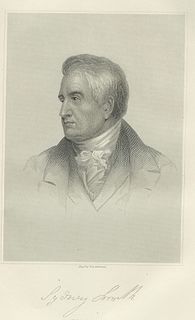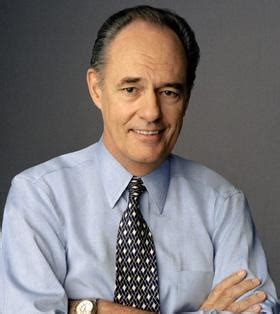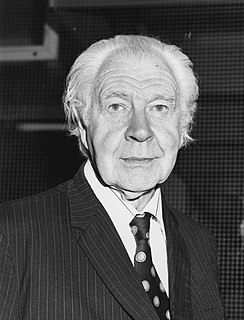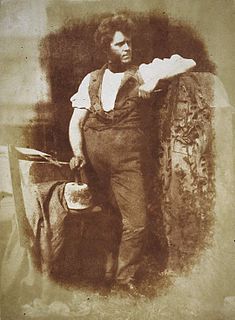Top 50 Hume Quotes & Sayings
Explore popular Hume quotes.
Last updated on April 14, 2025.
Philiosophers like Hume and Descartes and Hobbes saw things similarly. They thought that mental images and ideas were actually the same thing. There are those today that dispute that, and lots of debates about how the mind works, but for me it's simple: Mental images, for most of us, are central in inventive and creative thinking.
The not-visibly-insane Democrats all claim they'll get rough with the terrorists, but they can't even face Brit Hume. In case you missed this profile in Democrat machismo, the Democratic presidential candidates are refusing to participate in a debate hosted by Fox News Channel because the hosts are "biased." But they'll face down Mahmoud Ahmadinejad! At this, even Hillary Clinton was thinking, "Come on, guys - let's grow a pair."
I hope that people will come and experience our play 'A Small Oak Tree Runs Red' . I don't want anybody to suffer, but I source the 18th Century philosopher David Hume in association with the experience. He asserted that when we go to a tragic play, and when the form of tragedy is well put together, then we can experience a catharsis that is soul cleansing, and an anodyne to what our life would be like without it.
An atheist before Darwin could have said, following Hume: I have no explanation for complex biological design. All I know is that God isn't a good explanation, so we must wait and hope that somebody comes up with a better one. I can't help feeling that such a position, though logically sound, would have left one feeling pretty unsatisfied, and that although atheism might have been logically tenable before Darwin, Darwin made it possible to be an intellectually fulfilled atheist.
Acts themselves alone are history, and these are neither the exclusive property of Hume, Gibbon nor Voltaire, Echard, Rapin, Plutarch, nor Herodotus. Tell me the Acts, O historian, and leave me to reason upon them as I please; away with your reasoning and your rubbish. All that is not action is not worth reading.
"We hold these truths to be sacred and undeniable" in a draft of the Declaration of Independence changes it instead into an assertion of rationality. The scientific mind of Franklin drew on the scientific determinism of Isaac Newton and the analytic empiricism of David Hume and Gottfried Leibniz. In what became known as "Hume's Fork" the latters' theory distinguished between synthetic truths that describe matters of fact, and analytic truths that are self-evident by virtue of reason and definition.
Taste is not stationary. It grows every day, and is improved by cultivation, as a good temper is refined by religion. In its most advanced state it takes the title of judgment. Hume quotes Fontenelle's ingenious distinction between the common watch that tells the hours, and the delicately constructed one that marks the seconds and smallest differences of time.
Accordingly, France Had Voltaire, and his school of negative thinkers, and England (or rather Scotland) had the profoundest negative thinker on record, David Hume: a man, the peculiarities of whose mind qualified him to detect failure of proof, and want of logical consistency, at a depth which French skeptics, with their comparatively feeble powers of analysis and abstractions stop far short of, and which German subtlety alone could thoroughly appreciate, or hope to rival.
Hume's doctrine was that the circumstances vary, the amount of happiness does not; that the beggar cracking fleas in the sunshine under a hedge, and the duke rolling by in his chariot, the girl equipped for her first ball, and the orator returning triumphant from the debate, had different means, but the same quantity of pleasant excitement.
In one of the most brilliant papers in the English language Hume made it clear that what we speak of as 'causality' is nothing more than the phenomenon of repetition. When we mix sulphur with saltpeter and charcoal we always get gunpowder. This is true of every event subsumed by a causal law in other words, everything which can be called scientific knowledge. "It is custom which rules ," Hume said, and in that one sentence undermined both science and philosophy .
No true geologist holds by the development hypothesis;-it has been resigned to sciolists and smatterers;-and there is but one other alternative. They began to be, through the miracle of creation. From the evidence furnished by these rocks we are shut down either to belief in miracle, or to something else infinitely harder of reception, and as thoroughly unsupported by testimony as it is contrary to experience. Hume is at length answered by the severe truths of the stony science.
Moral theory develops from the divine command theory of medieval Christian philosophy, mixed up with a bit of ancient pagan virtue theory, to the purely secular moral sentiment and interpersonal reaction theories of Smith and Hume, to Kant's attempt to restore command theory but with something supersensible in the individual rather than God as the source of authority.
When Hume and Adam Smith prophesied that a little increase of national debt beyond the then amount of it, would probably occasion bankruptcy; the main cause of their error was the natural one, of not being able to see the vast increase of productive power to which the nation would subsequently obtain.
However inadequate our ideas of causal efficacy may be, we are less wide of the mark when we say that our ideas and feelings have it, than the Automatists are when they say they haven't it. As in the night all cats are gray, so in the darkness of metaphysical criticism all causes are obscure. But one has no right to pull the pall over the psychic half of the subject only . . . whilst in the same breath one dogmatizes about material causation as if Hume, Kant, and Lotze had never been born.
Jefferson, Madison and many others taught that complex laws and codes were sure signs of oppression. They agreed with Montesquieu, Lock and Hume and that laws must be simple....and indeed that the entire legal code must be simple enough that every citizen knows the entire law. If a person doesn't know the law....he shouldn't be held liable for breaking it or freedom is greatly reduced.
But, in truth, the existing premises, wholly altered by geologic science, are no longer those of Hume. The footprint on the sand — to refer to his happy illustration — does not now stand alone. Instead of one, we see many footprints, each in turn in advance of the print behind it, and on a higher level.
When Hume insists that taste is a matter of delicacy, that it is a matter of having a sensitivity to features of an object itself, he is very close to the rationalist doctrine. Hume was really a covert objectivist (or partial one) about aesthetic pleasure because that pleasure had to be based on the sensitivity to features in the object.
I had no idea what philosophy was until I went to college at UBC. I first read Hume and Plato, so naturally I was under the misapprehension that philosophers are trying to figure out what is true, and that contemporary philosophers are mainly trying to figure out what is true about the mind. Of course Hume and Plato were trying to do that, hence my misapprehension.
Russell's prose has been compared by T.S. Eliot to that of David Hume's. I would rank it higher, for it had more color, juice, and humor. But to be lucid, exciting and profound in the main body of one's work is a combination of virtues given to few philosophers. Bertrand Russell has achieved immortality by his philosophical writings.











































